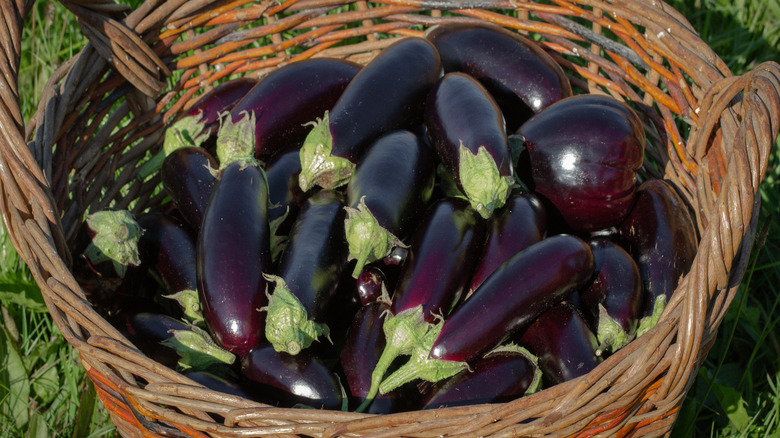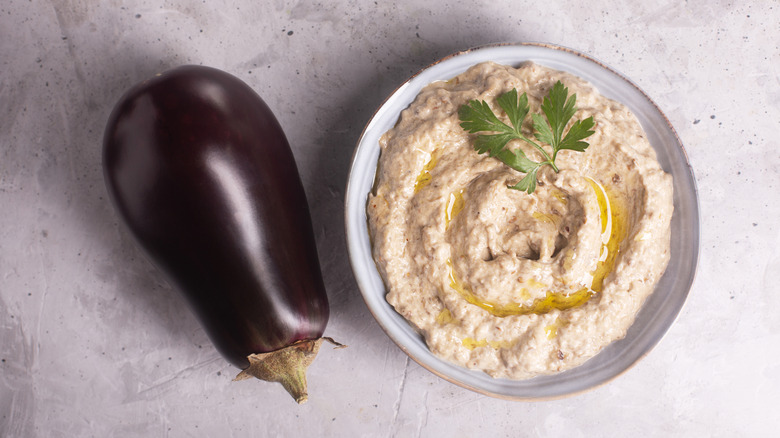How To Store Eggplant To Avoid A Soft And Mushy Fruit
The eggplant has a few strikes against it — not only is it one of America's least-favorite vegetables, but it's also saddled with a confusing name. While it's technically a plant, it's nothing like an egg, nor is it particularly egg-shaped. In the U.K., where it's known as aubergine, it's also unpopular, so the name isn't the root of its poor reputation. Instead, many eggplant haters object to its texture, which has a lot to do with how it's cooked, but is also affected by storage. Eggplant isn't one of the longer-lasting vegetables, so it can soften and grow mushy pretty quickly. Its best temperature range for storage is 50 to 55 Fahrenheit, so you could try keeping it in the basement, but at room temperature, it'll only last about two days.
If it'll take you longer than that to eat your eggplant, wrap it in paper towels and stick it in the refrigerator crisper drawer for up to a week. Keep it away from bananas or apples, though, as these fruits give off gases that will hasten its decline. Don't plan on chopping your eggplant until you're ready to use it, either, since sliced vegetables spoil faster. If you do have leftover sliced eggplant, store it in an airtight container in the fridge and use it within four days. It may darken in color, but lemon juice helps to prevent this. Freezing sliced eggplant is also an option, although this will make it more watery so it might be best to cook the eggplant first.
What can you do with eggplant if it does become overripe?
Sometimes, despite your best intentions, you may find that a week or two has gone by before you've had time to cook your carefully-wrapped and refrigerated eggplant and whoops, the darn thing did get kind of mushy. In this case, you might not be able to use it in a dish like walnut-stuffed eggplant, where appearance is everything, nor might you make it into a marinated eggplant dish where texture is a large part of the appeal. It would still be great in twice-cooked eggplant dip, however, as well as the fairly similar baba ganoush, which was an early-round pick in our fantasy food draft of best party dips.
Besides dips, you can also use overripe eggplant as an ingredient in veggie burgers. Once it's been cooked and ground up in a food processor alongside other vegetables such as spinach, mushrooms, peppers, and beans, its softer texture won't be a factor. The same is true of eggplant soup or pretty much any recipe where the eggplants are pureed after cooking since this step will effectively disguise any softening due to over-ripening. As long as the eggplant is merely mushy, not rotten, it should be safe to use in cooking.

